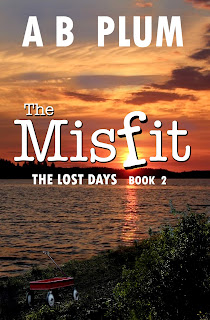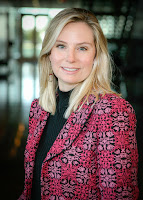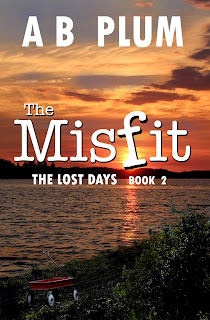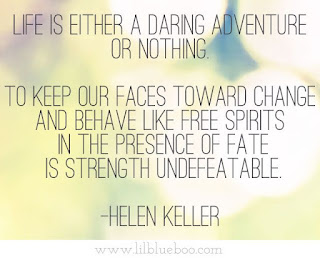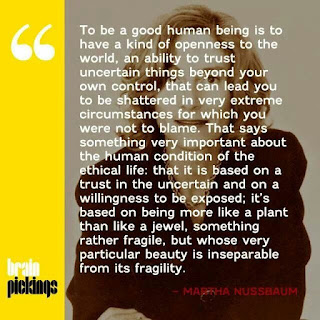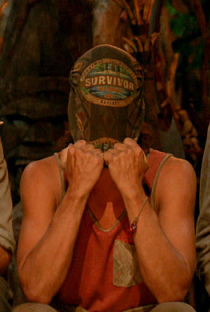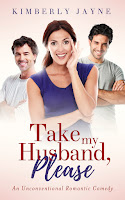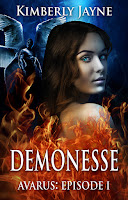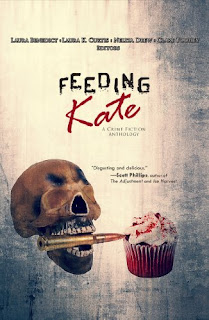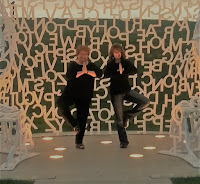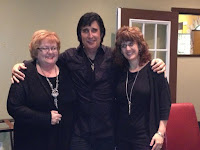Two Years of Wisdom in 250 Words or Less
/in Uncategorized/by Julie MulhernOn Friday, my first book, The Deep End, will turn two. There it is toddling around Amazon and Barnes & Noble!
Two years ago, I eagerly anticipated being launched to the top of the New York Times list. Hollywood would call. I’d be coy (not really).
Two years ago, I knew nothing about publishing.
I know a little bit more now.
If a new author were to ask my advice, this is what I’d tell them…
- The adage is true, the only thing a writer can really control is the quality of her book.
- Marketing matters. Don’t expect your publisher to do this for you.
- Know your readers.
- Don’t give your rights away! Foreign language, audio, television and film–they’re all worth more than my newbie self could have imagined.
- If you’re self-publishing, don’t publish before you’re ready. It’s great if your mother and your spouse and your best friend love your book. But their love doesn’t mean your opus is ready for primetime. Professional editing (both developmental and copy) make a huge difference.
- What is your brand? If you can’t answer, you can’t expect your readers to find you.
- Finally, think marathon not sprint. A few lucky authors rocket to the top of the lists with their debuts. For the rest of us it’s about building a readership, keeping those readers engaged, and making sure each book is better than (or please God, at least as good as) the last.
Julie Mulhern writes the Country Club Murders, a series of humorous mysteries set in the 1970s. Feeling nostalgic for Tab, phones with cords, or harvest gold? Pop over to the country club! While you’re there, play a round of golf, a set of tennis, or a rubber of bridge. Good, almost-clean fun! No bodies…well, no promises.
Book five in the Country Club Murders, Watching the Detectives, will release May 23, 2017.
Where I Work
/in Uncategorized/by DebraI Work by Debra H. Goldstein
writings are diverse. Consequently, I named my personal blog (www.DebraHGoldstein.com/blog) “It’s
Not Always a Mystery.” That blog title still captures my personality and
authored works perfectly, but recently, I noticed there is another area in
which I vary what I do – where I write.
bathwater, I am my most productive. That holds true – rolling ocean or gulf
waves, rippling lakes, or placid tub water all calm me enough to create or
clarify thoughts. Unfortunately, I live in a landlocked area and since my November foot
surgery, I’ve been limited to showers (that’s another story to be told —
think fat naked lady trying to decide if she needs to call 911). Consequently,
I’ve had to find other places for stimulation.
hope will be my next book, I’m sitting in my living room in a one-hundred plus
year old chair (recovered a couple of times during that period) that originally
belonged to my grandmother. This room, decorated in blue, gold and orange is my
favorite in the house we downsized to twelve years ago. It is bright, but
comforting. The colors are restful, but bold. Two chairs, an ornate couch, and four
mahogany tables belonged to my grandmother, my aunt, and then to me. Two end
chairs, with backs that make me think of a harp, perhaps because they are
placed near the piano bought for me when I was six, were my mother’s pride and
joy. There is a mirror and vases over the fireplace, inherited from my
mother-in-law, that match the two Capodimonte lamps that no one in the family
treasured except my grandmother and me. Although I may play music on the piano
or through an iPod, there is no television or other distractions. I work
diligently in this room and I am at peace.
different. That chair, which was designed for my father, who like me had long
legs, has an extra depth of two inches. Add those two inches to the ottoman
that can be pulled to touch the chair, and perfect comfort can be achieved. It
is a room for drafts – for starts and stops – for formulating ideas and letting
them percolate while the television in front of me calls my name to turn it on
and make short shrift of my work. Despite my willingness to be distracted in
this room, I am proud of the work product produced there.
even though I spend most of my time there. In our former house, my office was a
600-square foot sanctuary with a wall lined with bookcases. When we downsized,
I adopted a 13×15 bedroom and placed my computer on a credenza between the two
windows so I could write looking over the tops of the neighborhood’s houses. I
hung an inspirational picture above the credenza. Turning my back to the
credenza, brings me to my oversized desk which sits before a smart television.
The sides of the room have free standing floor to ceiling bookcases – biography
on one wall, mysteries overflowing on the other. Because of the limited space,
I had to move novels and literature to the hallway, children’s books, plays,
and non-fiction to another bedroom. Although I write some drafts in this room,
most of the time, I use my stand-alone desktop to polish manuscripts, make sure
spacing and formatting is correct, and to send the final copy from. Paperwork,
social media, promotional activities, and all business-related chores are
handled in my office. There is creativity present in the room, but it is tinged
with reality.
key parts of my office into my dining room (computer, printer, paper, pens).
That elegant room now looks like the Martians have landed and it wasn’t pretty.
It is not restful or enjoyable to work there. My chair, wonderful for formal
dinner parties, is stiff for creativity. The room, which is fun to laugh and
spend an evening in with friends, is lonely when I’m alone. Working in there is
a stop and go process interspersed with games of spider solitaire. I want my
dining room back the way it was meant to be.
write or do author related things are. As diverse as they are, they represent
the diversity that is part of being an author and what makes me who I am as a
person. Where do you write and how does it impact you?
Parent Traps
/in Uncategorized/by Bethany MainesBy Bethany Maines
A recent trip to the grocery store reminded me that Valentine’s Day is upon us. As I cruised down a particularly pink and red aisle I saw wall to wall sets of movie themed Valentines for kids. Which made me realize that as my spawn starts to become an actual kid certain things are barreling down on me. Valentines. Birthday parties. Teacher gifts. And all of them cause me to think – what the hell?
When did teacher gifts become a thing? I don’t remember my mom having to essentially tip any of my teachers. Teaching is an arrangement in which someone gets paid to show up and tell things to small people. It was a nice arrangement with very clear cut guidelines – show up, learn/teach, go home. Now all of my friends with older kids are dithering about teacher gifts around Christmas. I recognize that teachers aren’t paid enough, but crappy set of lotion at Christmas is not going to make up for that.
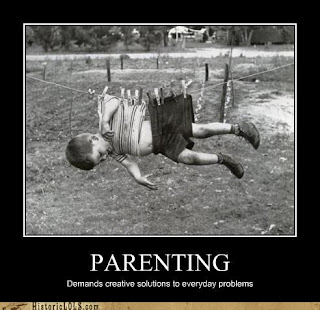
And suddenly if you have a birthday party for your kid there have to gift bags for the children who attend. Birthdays are the day when everyone shows up and gives the person celebrating a gift. Why are we now bribing people to attend? If I have to bribe you to show up then you are not my friend. I suppose the alternative theory is that the small children cannot handle the sight of someone else receiving gifts. But… Isn’t that the entire point of parenting – teaching your kids to manage their own emotions? So wouldn’t gift bags just be me supporting your poor parenting?
Valentine’s Day has now become a flashpoint for grade school bullying. Better give a Valentine to everyone or you’re a bully. Sounds lovely. You know what that means in reality? It means that I have to buy Valentines. A kid can make four or five Valentines, but no grade schooler is going to hand-craft an entire classrooms worth of Valentines. So now I’m stuck supporting the Hallmark industry? Swell.
Can someone figure a way out of this for me? Can I just carbon freeze my kid at three? Or can I start a social revolution for those of us who are anti-social? Somebody help!
Mae Mysteries, Wild Waters, Tales
from the City of Destiny and An
Unseen Current. You can also view the Carrie Mae youtube video
or catch up with her on Twitter and Facebook.
ALTERNATE FACTS—WHAT’S THE BIG DEAL?
/in Uncategorized/by ABPlumBy A B Plum
Strength Undefeatable
/in Uncategorized/by J.M. Phillippe“If we’re going to find our way back to each other, vulnerability is going to be that path. And I know it’s seductive to stand outside the arena, because I think I did it my whole life, and think to myself, I’m going to go in there and kick some ass when I’m bulletproof and when I’m perfect. And that is seductive. But the truth is that never happens.”
Working Through It: Motivation in Backstory
/in Uncategorized/by The Stiletto GangBy Kimberly Jayne
months, I’ve felt like I’ve been stuck on Survivor.
I don’t know about you, but from my perspective, with the election won by the
most disagreeable guy on the island (who should have been easily voted off)—and
a death in my family—I’ve been grieving. And it’s affected my writing.
else that tests my sanity, I’m confident this too shall pass. It’s worth noting,
though, that when the Fates point our heads in one direction, their sleights of
hand point us in another without our recognizing it until after the fact.
Instead of actually writing, I’ve had a lot of time to think—some of it even
deliberately. While I’m not able to boast productivity in word counts, I am
able to count lots of behind-the-scenes progress on premise, backstory,
character motivation, truths, lies, and arc.
aspect of the plot concerns where the protagonist comes from and the secret nature
of her existence, which informs the trajectory of her arc and will ultimately
make an enormous impact on her world. Shocking, actually. Some of this was
already sketched out but just vague enough to roadblock my forward momentum.
or rather, creative hashing out. For the story engine, the “why”
aspect of the character’s motivation is the jet fuel that can turn a book into
a page-turner—or a disorganized snoozefest, if you’re always running on empty.
It’s also the kind of epic behind-the-scenes battle that writers frequently
avoid because it’s just not easy. And until writers resolve these “why”
elements, they’ll torture themselves with “how it should all go—this way,
not that way—wait, that other way, because what if…” until it’s perfect. Until
it’s perfect, procrastination is the well-spring of writer’s block.
alternately moping and becoming a better activist, my brain has been
percolating on “why” story elements that are making my book
better—far better. I didn’t realize the extent of this percolation until a
series of light-bulb moments culminated in giddy, hand-rubbing, Mr. Hyde-like
epiphanies.
on napkins, texting plot fragments to myself, talking it out with my cats, and forcing
a series of writing sessions where my progress was measured by how many minutes
my butt stayed in my chair. Of course, it helps to have writing buddies who
will brainstorm and pro-and-con ideas with me.
is that I’ve created a stronger spine on which to hang my story. I know the
truths, and I know the lies. And now I have to wield them with precision. I’m
beginning to enjoy the writing again and celebrate the return of a terrific
adventure I enjoy diving into in each day—in a place where I can ignore all the
hijinks happening on the island.
Kimberly Jayne writes humor, romantic comedy, suspense, erotica, and dark fantasy. Her latest foray into a dark fantasy released in episodes is as much an adventure as the writing itself. You can check her out on Amazon. Find out more about her at ReadKimberly.
Books by Kimberly Jayne:
Demonesse: Avarus, Episode 2
Demonesse: Avarus, Episode 3
All the Innuendo, Half the Fact: Reflections of a Fragrant Liar
A Heroine for the Ages Meets a Bizarre Loner
/in Uncategorized/by Linda RodriguezTwitter to put together an anthology to benefit our friend Sabrina
Ogden and the Lupus Foundation, I was in on it from the start. After
all, I love Sabrina, and I deal with lupus every day myself. So we
called it Feeding Kate since Kate is Sabrina’s blogosphere
nickname.
“Rivka’s Place,” could hardly be more different. They are a
true odd couple of disparate ages and experiences and yet with great
respect for one another and love. I’m a big believer in courage and
in love.
survivor, a woman who refuses to be bullied as her shop’s
neighborhood becomes more and more dangerous and insists on helping
everyone around her. The other, C.J., came of age many decades after
World War II by killing two men as his father had trained him to do,
only to learn that everything he’d been taught was a lie, a man who
wants nothing more than to be left alone in peace to do his work,
read, and hide from his memories and those who hunt him.
Rivka and C.J. come from?
that of a well-known Kansas City woman, who had escaped from the
death camps of Nazi Germany twice as a child and had indeed insisted
on continuing to run her bakery in a deteriorating neighborhood,
feeding many who couldn’t afford to buy her goods. She’s dead
now, and Rivka looks and sounds nothing like her. Rivka came out of
the folds of my brain, but her background owes a debt to this
remarkable real woman I never met. I have always found her story
inspiring. As I have found the stories of so many who live with lupus
an inspiration.
one anywhere remotely like C.J. He sprang full-blown into my mind and
demanded to be written. I have often wondered what would happen with
a young person who’d grown up in one of these cults or cult-like
families, indoctrinated in fear of civilization and government,
trained to defend the family against that “dangerous” government,
if that young person later learned that everything he or she had been
taught was a lie. C.J., I suspect, arose from these idle wonderings.
me in a quandary when I first tried to write this story. Where could
it go? How could it end? I didn’t want to lose either of these
people I had come to value as I created them, but I didn’t see any
way that this could end well. These two characters were on a
collision course with tragedy. Eventually, I wrote the ending scene
through tears. Yet in some ways it is a happy ending because each
person is true to her and his inner self.
Fun Facts About Sparkle Abbey
/in Uncategorized/by The Stiletto Gang
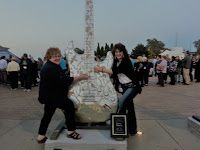
- We are friends as well as neighbors. We live just one street away from each other. We can see each other’s houses from our windows.
- We’re plotting to buy the house between to use as a writer’s retreat house. We’ll put in a pool.
- We were part of the same critique group for years before we started writing together. Our critique group sometimes travels with us and we love to plot stories with them on road trips.
- We love to travel together and usually navigate pretty well. Although we did once accidentally go to Michigan. (Shh…don’t tell our husbands. We’ve never told them.)
- Our favorite drink is a margarita on the rocks or an iced tea. When we stop in our neighborhood pub, Francies’, after work the waitresses just ask if it’s an iced tea night or a margarita night.
- We’re also regulars at our local Starbucks, where they call us Non-Fat, No-Water Chai and Skinny Hazelnut. If one of us is there without the other, the barista often asks where the other half of the team is.
- We both love beaches and find the ocean soothing.
- Our husbands enjoy each other’s company and enjoy scotch tastings and comparing preferences.
- We’re both grandmothers and are crazy about our grandchildren.
- We have taken yoga classes together, although one of us (guess who) has been known to fall asleep during the relaxation portion.
- We love Broadway shows and packed as many as possible into our last New York City trip. We also had a Rod Stewart sighting. Ask us about it.
- At least once a week, we text each other and ask if it’s possible to join the Witness Protection Program.
- We are featured in a Writer’s Digest book “Writing with Emotion, Tension, & Conflict” in the chapter on “Tension and Pressure.”
- We picked the pen name ”Sparkle Abbey” because those are the names of our two rescue pets, Sparkle (ML’s cat) and Abbey (Anita’s dog.) The other choice using our other pets’ names was – Chewbacca Matisse
Okay, now it’s your turn. Share some of your fun facts!
February 2017 Real Life Stories About Greed, Corruption, and Murder by Juliana Aragon Fatula
/in Uncategorized/by The Stiletto Gang
My bestfriend is a journalist and a very good one. She writes about homicides and horrible things that people do to one another. I write fiction. She writes non-fiction. Sometimes we have tea and she tells me her real life horror stories about the bad things that go bump in the night. I don’t know how she deals with all of the heartache and pain she hears from people she interviews who have experienced the loss of loved ones. It’s easy for me to create a fantasy world and characters who kill each other in horrendous ways. She talks to coroners and detectives, witnesses, and survivors and tells the stories we read in our Sunday papers. She’s tough. She has to be. She tells me the stories and I can see how they affect her; keep her up at night, depress and anger her.
I realized my stories are nothing compared to the real life drama she experiences with her job. She has been writing for 25 years. I wonder when she retires what she’ll write about. She told me once, when you have to write for a living, it’s not as much fun to write a novel. Something like that. I encourage her to write. To tell her story. But I understand why she doesn’t. Her head is full of real life horror stories about murder, rape, stabbings, beatings, gun shots, drowning, hanging, suicide…
I never understood how difficult her job is until she started sharing with me her interviews with victims and their families. The survivors. She says they just want someone to listen to them and their frustration with the criminal justice system. She goes to court and sees the suspects go to trial. She hears the witnesses testify about the actual events that occurred in the crime. She does this over and over and over again. There is no end to the crime in our small community.
I admire and respect the work she does. It’s not easy, but someone has to report the truth. She is diligent and professional and does a tremendous job. Sometimes, I don’t know what to say to her to make her feel better. I tell her how proud I am of her and her dedication to investigating the stories to get the truth. She uncovers injustice. She tries to get her victims the closure they need to move on.
I’ve learned a great deal about crime from her. She deals with the corruption, the lies, the hate. We read the newspaper and learn about the crime from her writing, but she knows the details, that even we don’t learn about because they are so terrible.
My homegirl, loves pugs, bostons, and whatever the hell Angel is, a chihuahua? Anyway, she is special; she is spectacular; she is big, blonde, and beautiful.
She’s such a professional journalist that she has been on the Investigative Discovery Channel twice for interviews about the murder trials she’s covered over the decades. For living in a small town, we have a tremendous amount of crime, drownings, and suicides at the Royal Gorge River in the canyon.
My hope for her is that someone watches her on TV and hires her to do investigative reporting for a news channel. She would be terrific. But she’s too modest; she doesn’t believe her own worth. She’s priceless; she’s the best friend a woman could ask for.
When I’m writing my murder mystery, I think about her and the difficult job she does everyday. I’ve never met anyone like her. She works at one of the hardest jobs that exist.
I’ve been watching CNN religiously since the election and I hear politicians talking about alternative facts and telling the media to keep their mouths shut. It angers me that the people elected to protect us are trying to sneak the wolf in the back door while we are looking the other way. I believe in the first amendment and freedom of speech.
My bestfriend never looks the other way or sneaks anyone in the backdoor; she investigates, interviews, documents, photographs, and writes the stories that reveal the dark side of mankind.
I appreciate her work ethic and stamina to tell the stories that are stranger than fiction. She is my s-hero because she stands up to the politicians, the lawyers, the police and represents the public’s right to know the truth. Amen, sista’.


